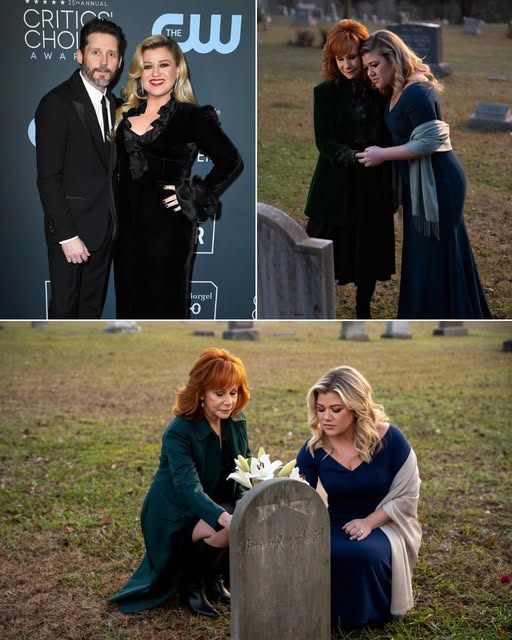“I see your strength, Ashleigh!” Susan Boyle, 64, brought 1,500 guests to tears at the Pride of Scotland Awards at the Glasgow Hilton, Edinburgh on June 24, 2025, when she presented the King’s Trust Young Achiever Award to Ashleigh Lancaster, 28, according to the Daily Record. Honoring Ashleigh’s journey from surviving domestic violence to founding Lancaster Solutions, a mental health training company, Susan’s heartfelt words resonated deeply. Returning to her hometown stage 13 years after her 2010 Pride of Britain performance, Susan sang an emotional tribute to Scotland’s unsung heroes to the song You Raise Me Up, hosted by Elaine C Smith and Sanjeev Kohli, with fans gushing, “Susan’s voice heals everything!” Was this her most inspiring moment yet?
Thirteen years ago, Susan Boyle stood alone on a grand stage at the Pride of Britain Awards, singing “A Perfect Day.”
She was a symbol of quiet strength—a woman who had stunned the world on Britain’s Got Talent, not with glamor or polish, but with a voice that trembled with truth. That night in 2012, her performance felt like a gentle balm on the wounds of a nation. A reminder that there is beauty in imperfection, and sometimes the most powerful songs come from the most wounded hearts.Last night, Susan Boyle returned to a stage like that once more.
But this time, it wasn’t London—it was home. Scotland.
The Pride of Scotland Awards 2025 welcomed her not as a rising star, but as a living legend. And she wasn’t just there to sing. She was there to present an award that resonated deeply with her own life journey: The King’s Trust Young Achiever Award.
The honoree? Ashleigh Lancaster, a woman whose path to the stage was carved through darkness—but whose story now shines with breathtaking light.
Ashleigh is not a celebrity. She doesn’t walk red carpets or grace magazine covers.
But her courage has changed lives.
Years ago, Ashleigh survived domestic abuse. The kind that leaves bruises not only on the body, but deep in the soul. For a time, she struggled in silence—grappling with depression, anxiety, and the weight of invisible wounds. She could have stayed there, in that shadow. Many do.
But she didn’t.
With remarkable resilience, Ashleigh chose not just to heal—but to help others heal too. She turned her pain into purpose, launching Lancaster Solutions, a business offering mental health training for frontline workers. Her mission? To make sure no one feels alone in their suffering the way she once did. Her workshops are honest, raw, and deeply human. Nurses, police officers, social workers—those who face trauma every day—come away not only trained, but transformed.
Ashleigh speaks up for the voiceless. She builds bridges where shame once built walls. And everywhere she goes, she’s accompanied by Blu, her sweet assistance dog—a partner in healing, and proof that love can be trusted again.
The moment Susan Boyle walked on stage to introduce Ashleigh, the room shifted.
There was a quiet hush. It wasn’t just admiration for Susan’s legacy—it was something deeper.
It was the recognition of two kindred spirits.
Two women who had faced life’s cruelties, been doubted and dismissed, and yet stood tall with grace.
Susan didn’t read from a script. She spoke from the heart.
“In Ashleigh,” she said softly, “I see the kind of strength that doesn’t shout… but lifts others quietly. Gently. Powerfully. Her story reminds us that healing is possible, and that even the worst chapters of our lives can become the reason someone else survives.”
Then she turned to the mic. The lights dimmed.
The first notes of “You Raise Me Up” echoed through the hall.
Susan’s voice, still as hauntingly beautiful as the day she first stunned the world, carried every ounce of sincerity.
The lyrics weren’t just a tribute—they were a prayer.
A hymn for every person who has walked through the fire and found something holy on the other side.
“When I am down, and oh my soul so weary… When troubles come and my heart burdened be…”
As she sang, the camera panned to Ashleigh in the audience—tears on her cheeks, hand over her heart. The emotion was too big to hold.
Because Susan wasn’t just singing to her.
She was singing for her.
For the girl Ashleigh used to be—the one afraid, alone, and unseen.
And for the woman she has become—the one who raises others up every single day.
The chorus hit, and Susan soared:
“You raise me up, so I can stand on mountains… You raise me up, to walk on stormy seas…”
Every note seemed to lift the roof. Not with force—but with faith. The faith that no pain is wasted, and no soul is too broken to shine again.
As the final chords faded, the entire room rose in a standing ovation—not just for Susan, and not just for the song.
But for Ashleigh Lancaster, the woman who turned trauma into transformation.
The woman who didn’t just survive—she rebuilt, she reached back, and she raised others up.
Ashleigh took the stage to accept her award, visibly moved.
She didn’t speak long—but her words carried weight.
“There was a time,” she said, voice shaking, “when I didn’t think I’d live to see another year. And now… I get to help others see hope in theirs. I owe that to everyone who believed in me—and to Blu, who never let me go. Thank you. This award isn’t just mine. It belongs to every survivor who’s still fighting.”
And then she looked at Susan and whispered, “Thank you… for that song. I’ll never forget it.”

Two women. One stage.
Bound not by fame or spotlight—but by truth, empathy, and the quiet, powerful decision to keep going.
And as the Pride of Scotland Awards came to a close, the crowd didn’t just leave with admiration.
They left with something deeper: inspiration.
Because when we raise each other up—when we dare to turn pain into light—
We don’t just change our own lives.
We change the world.


